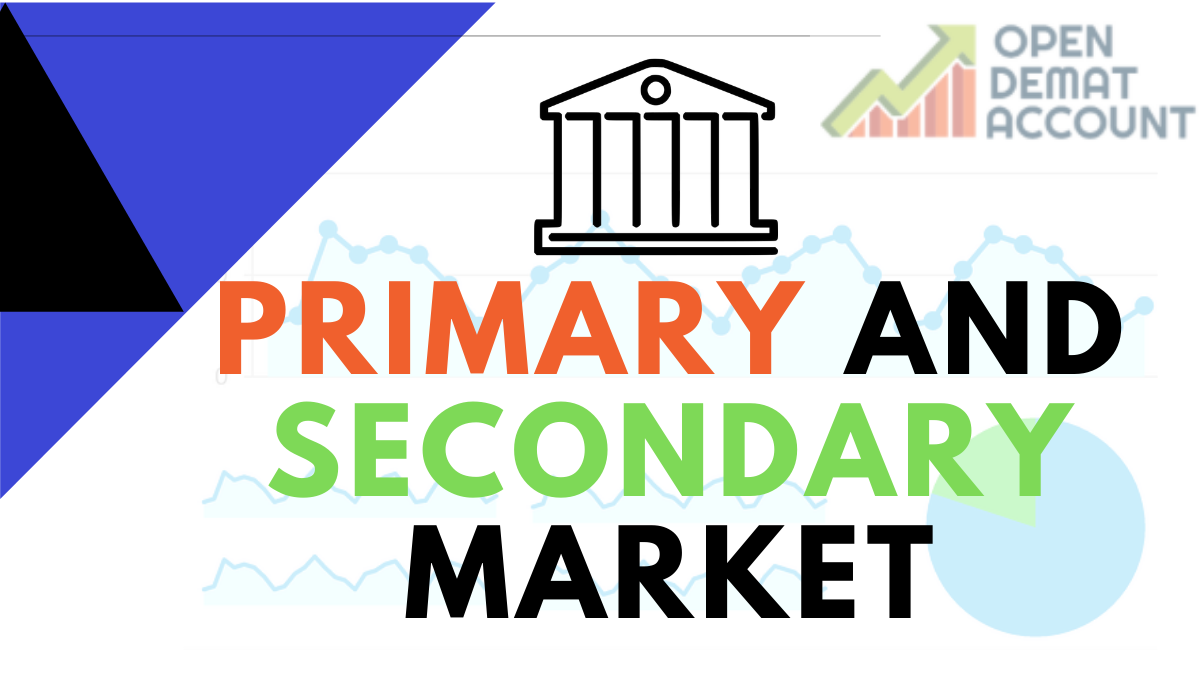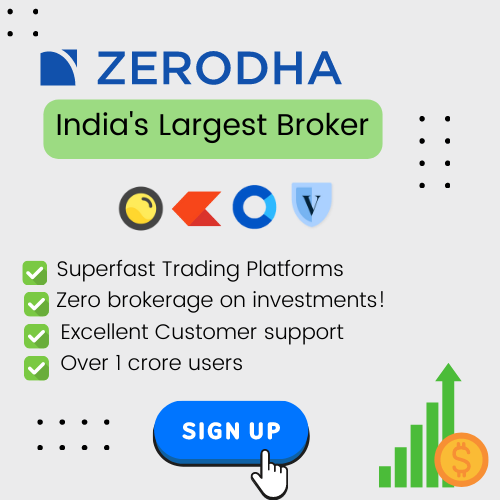Before start investing in the stock market, there are a few terminologies you must be familiar with, in which Primary and secondary market is one.
A primary market is a market where buyers and sellers negotiate and transact directly without any help of brokers or resellers whereas the secondary market is where investors buy and sell securities they already own.
Let us discuss the primary and secondary market in detail.
Primary market
Table of Contents
A company gets registered to allocate shares to the investors and raise funds. They get listed on the stock exchange through the primary market route. If a company is selling its shares for the first time, then it is called an Initial Public Offering or IPO, after which the firm becomes public.
While offering an IPO, the company has to announce its details like financials, promoters, businesses, stocks being issued, price band publicly.
In the primary market, there are 4 types of issues which are the public issue, private placement, preferential issue and bonus issue. A public issue does not restrict investing, whereas, in a private placement, the issuance is done to select a number of investors.
In public allotment, the allotment is done to more than 200 people
In private allotment, the allotment is done lesser than 200 people
As the shares are instantly issued by the organisations to its investors, the organisation gets the fund and issues shares to the investor. The shares issued to the investors in the primary market are in
- Face value
- Premium value
- Par value
The shares are traded on the secondary market such as stock exchange, bonds market, derivative exchange when the issue of shares is closed.
Here are the five types of Primary Market issuances
- Public Issue: In the public issue, an organisation arises capital by selling its shares through an issue of the offer document.
- IPO: In an Initial Public Offer(IPO), an organisation makes a fresh issue of shares to the public for the first time.
- FPO: In Follow on Public offer(FPO), a public limited company which is listed on stock exchange issue extra shares to the general public.
- Rights Issue: In the right issue, a listed organisation makes an issue of extra shares only to its current shareholders.
- Preferential issue: In the preferential issue, a listed company issues shares to a selected group of people in order to raise extra funds.
Why do companies issue shares to the public?
As each and every company needs capital for expansion so they enter into the primary market to raise capital. The funds can be in the form of:
Equity: The stock capital of the company, is known as equity
Debt: The loans taken by the company are known as debt, this money raised in the primary market goes straight into the issuing company where capital formation takes place.
Keywords related to the primary market
Now let us know about a few related terms in the primary market:
Offer Document: The offer document contains all the information related to the company. The offer document includes company promoters, projects undertook, financial conditions, raising money, etc.
Price Band: It’s price ranges within which an investor can bid for shares.
Cut-off price: The cut-off price is decided by the issuer by consulting with the merchant banker at which the shares will be offered.
Minimum price: The minimum price at which bids can be done for an IPO.
Face value: It is the initial value at which the price of the shares won’t fall down.
Secondary market
The shares of an investor will be listed by buying and selling them. Secondary market transactions can help an investor to buy shares from another at the current price which are managed through a broker.
The secondary market provides investors with a chance to sell all its shares and exit the share market. A secondary market is a place that gives an effective platform for share trading i.e. to provide liquidity by converting investments into cash.
Types of Secondary Market
- Over the Counter market: The process where shares are traded in a simple way. The shares that are not able to manage to fulfil the requirements will be listed on a standard market exchange. It is a contract between an investor and a dealer. The stocks traded are mostly of smaller companies that cannot reach the exchange conditions for formal trade.
- Exchange-traded market: The exchange-traded market is also called the auction market. In the exchange-traded market, all the activities are routed within a central source that is responsible for being a mediator that joins buyers and sellers. The Market Participant in Secondary Market are Buyers, Sellers, & Mediators
Products in the Secondary market
- Equity: An equity is an ownership in a company in which all the stockholders will have equal rights regardless of the number of shares held by them. This consists of
- Equity shares
- Right share
- Bonus shares
- Preference shares: Owners of these shares should pay a fixed interest regularly before any dividend can be paid on Equity shares. These are classified into:
- Cumulative preference shares
- Participating preference shares
- Government Securities(G-sec): Government security is a bond that is provided by the RBI on behalf of the Government of India, in replacement of the central government’s market borrowing program with a promise of repayment upon the security maturity date. These are recognized as a low-risk investment as they are supported by the taxing power of a government. These shares have fixed coupons that are paid on particular dates on a half-yearly basis.
- Debentures: It is referred to long-term security having a fixed rate of dividend which is announced by a company and secured against the assets. These are normally paid every 6 months on a specific date with the maximum amount repayable on the maturity date. Debentures are divided into two kinds:
- Convertible debentures
- Non-convertible debentures
- Bonds: A bond is a variable device generally published by a company or government agency which gives proof of liability. An investor in a bond gives money to the issuer and the issuer in exchange agrees to repay the loan on the specific date.
The issuer pays interest regularly over the tenure of the loan. Its tenure can be up to 30 years. There are 4 types of bonds
- Zero-Coupon Bonds
- Convertible Bonds
- Commercial paper
- Treasury Bills
Difference between Primary and secondary market
| Primary market | Secondary market | |
|---|---|---|
| Known as | New Issue Market (NIM) | After Issue Market (AIM) |
| Role of the market | Market where stocks are issued for the first time | Market where stocks are traded once issued |
| Mediators | Investment banks | Brokers |
| Sale of securities | Directly by companies to investors | Sold and purchased amongst investors and traders |
| Price of shares | Fixed at par value | Changes depending on the supply and demand of shares |
Conclusion
The primary market which is also known as the New Issue Market is the market place where new shares are issued and the public buys shares directly from the company, usually through an IPO or FPO. A Secondary Market is a place where formerly issued securities are traded. The second market includes indirect trading of shares among investors.
Open Demat Account
Broker | Rating | Link to Open | |
|---|---|---|---|
Zerodha No.1 Stock Broker in India | ★★★★★ | ||
Upstox | ★★★★ | ||
Angel Broking | ★★★★ | ||
5 Paisa | ★★★★ | ||
StoxKart | ★★★★ |






Leave a Reply